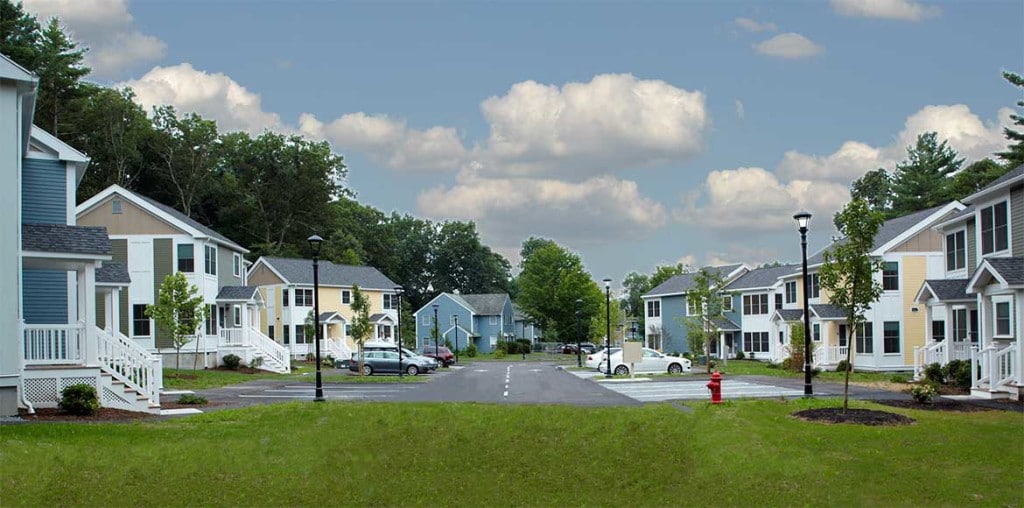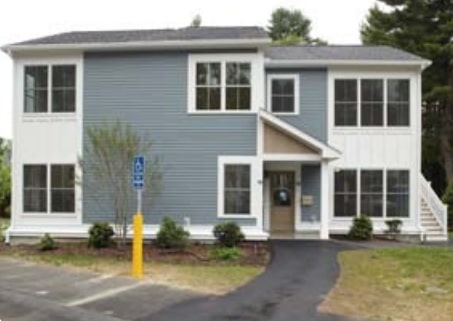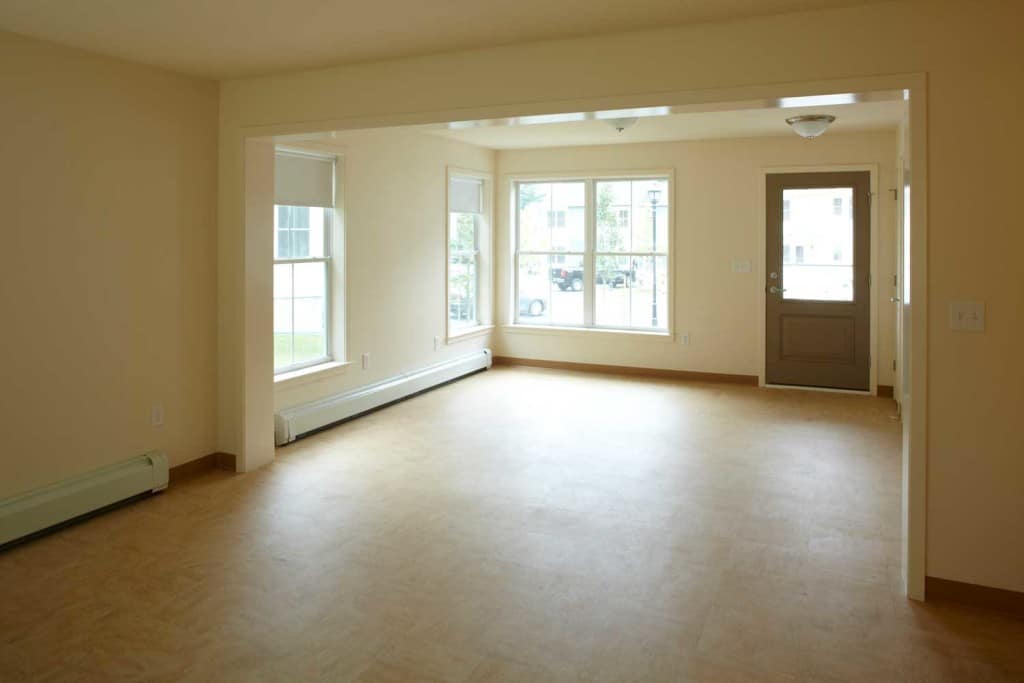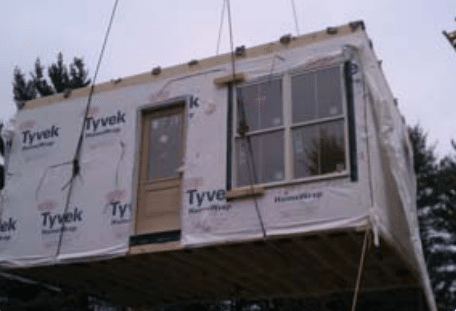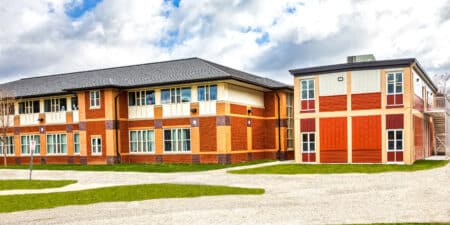Acton Housing Authority
Acton’s project consists of six two-story buildings containing twelve living units to be utilized as affordable housing for the Housing Authority. Designed with sustainability in mind, the modular construction project had an original goal of achieving LEED for Homes Silver Certification. Through design recommendations by Triumph construction services staff and the A&E design team coupled with modular construction methods which minimized waste through material efficiency, the project was able to achieve a LEED Gold Certification. This is further proof that green modular construction can be affordable.
» Contact Us About Your Multi-Family Housing Project «
The project called for finishes and fixtures that were designed for sustainability and energy efficiency and with consideration for durability. Durability is sometimes
overlooked as an aspect of building green. Examples of material finishes specified with longevity and ease of maintenance in mind include tile wainscoting walls in the bathrooms; resilient tile floors in lieu of carpeting throughout the units; Marmoleum stair treads and full height laminate backsplash in the kitchen. In terms of green design, the following features were utilized: low thermal emissivity large windows to allow natural light and reduce thermal radiation; an enhanced insulation package that exceeds the r-value requirements as defined by the IECC; reduced flow plumbing fixtures and landscape design to minimize outdoor water usage.
The project broke ground in September 2012 and completed in July 2013. Resulting in a well-planned and executed affordable housing community in the town of Acton.

